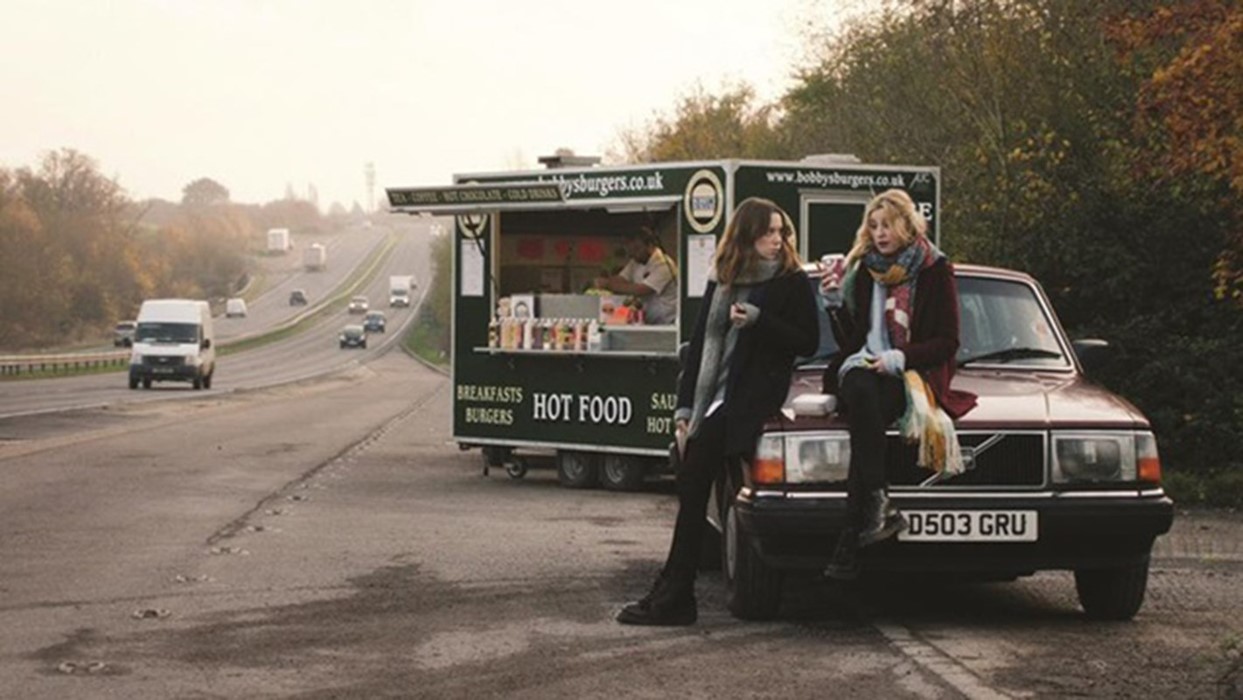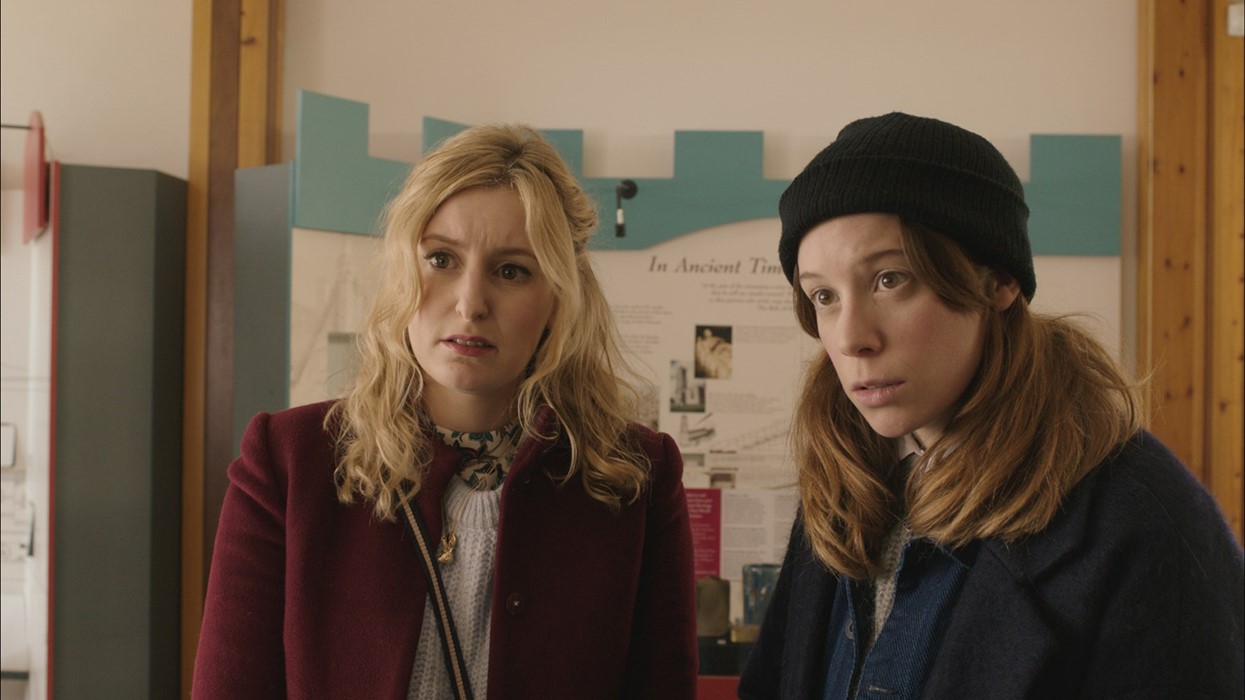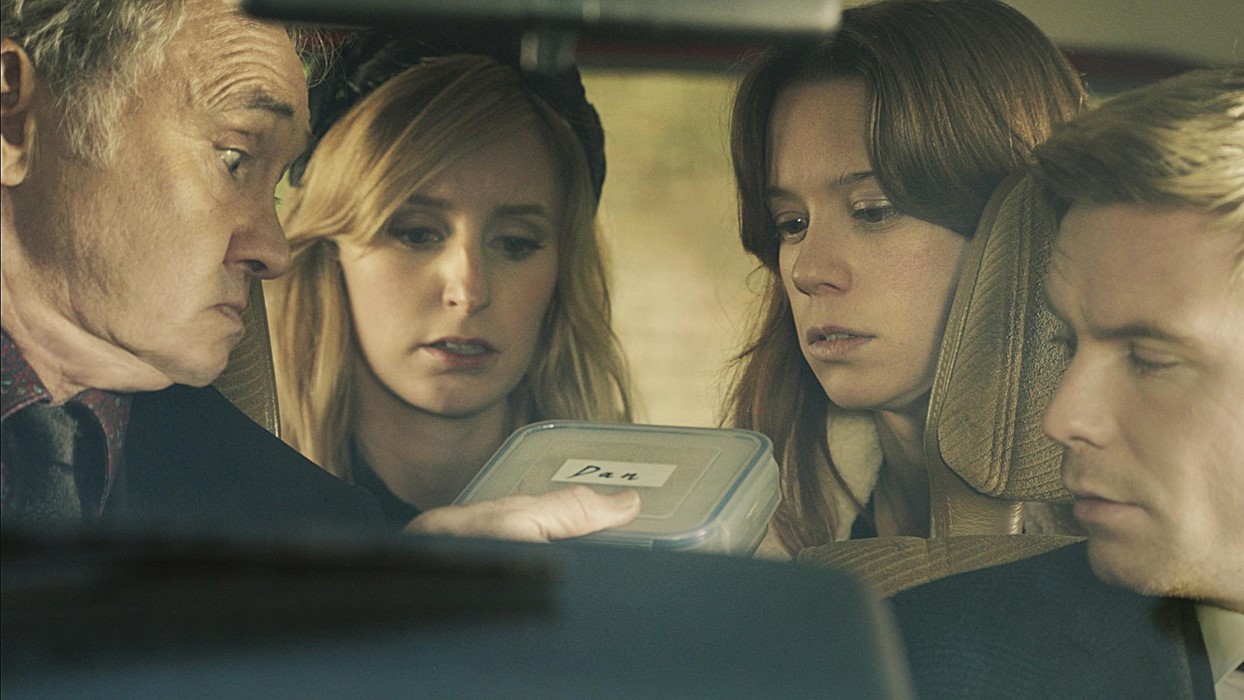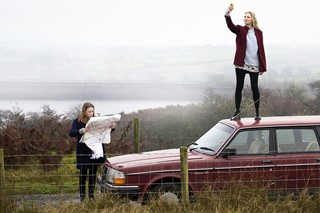As her debut feature Burn, Burn, Burn hits UK screens, we talk late-20s crises and film industry prejudices with rising director Chanya Button
Today marks the release of Burn, Burn, Burn, the anticipated debut feature from British director Chanya Button, which premiered at last year’s London Film Festival and saw Button nominated for BIFA’s coveted Discovery Award for emerging filmmakers. It’s been a long journey to get to this stage: “I’ve learnt a lot about the importance of stamina,” Button tells us over the phone. “There’s not a day that’s gone by that I haven’t done a significant amount of work on this film for three years, so you really have to love it and you have to really know why you’re doing it.” Both these sentiments underscore Burn, Burn, Burn – a warm and thoughtful black comedy about two friends who embark on a road trip across Britain to scatter the ashes of their late pal. For Button and writer Charlie Covell – who spent a year and a half developing the script together – it was a very personal project, based on their own friendship, and punctuated by witty, at times scathing, observations of their generation.
Laura Carmichael and Chloe Pirrie star as Seph and Alex, women in the full throes of a late-20s existential crisis – complete with lashings of self-pity (in the case of Seph) or flat-out denial (à la Alex) – which has been brought to a head by the untimely death of their friend Dan. Dan has left behind a series of video recordings, to be watched in various, pre-ordained locations where Seph and Alex have been instructed to scatter his remains. Like all the best road trip films, the ensuing voyage is an emotional rollercoaster, dotted with riotous encounters, peculiar characters, and poignant moments of reflection – about both the self and the wider world. The UK countryside, sumptuously shot in a low, wintery light, provides a beautiful yet melancholic backdrop to a captivating tale of self-discovery that combines the off-kilter humour of GIRLS with the British eccentricity of Withnail and I to glorious effect. Here, as the film finally hits the big screen we catch up with Button to find out more about its origins, how her past experience, both on major movies and in theatre, have affected her practice, and the British film industry’s troublesome addiction to precedents.

On the initial concept behind Burn, Burn, Burn...
“I started working in the film industry when I was really young. I was a runner on really big films like Harry Potter and stuff like that, so my education in the industry was on a big scale and revolved around big ideas, and my first few short films were quite high genre. I made a mad sci-fi short, that I am actually now developing into a series, and then I made this period drama about Charles Dickens for the BFI. And it was actually a brilliant director who saw the sci-fi short and said, ‘You’re really great with these huge ideas: you get genre, you get scale but why don’t you try making something really personal?’ And I realised that I hadn’t yet done that.
I was simultaneously working with Charlie and we were watching a lot of stuff at that time like GIRLS and Frances Ha, Noah Baumbach films – all those great American, indie, mumblecore films that really took off a few years ago – and we thought that there was nothing being made in this country that was a British response to that, or nothing that spoke to us about our lives and our group of friends anyway. So the film is inspired by mine and Charlie’s friendship. I was at that moment where I wanted to make something very personal; I wanted to figure out how you make your worldview into a film.”
On documenting the late 20s malaise…
“A lot of the behaviours of the lead characters – including Dan, the character that passed away – are exacerbated by the fact that [in our late 20s] we are still very young and our lives are ahead of us. You can rack yourself with the decision about whether you need to change your job, whether you’re ready for a relationship, whether you should break up with your boyfriend; you have problems, you have things that occupy your mind but then often something bigger will happen to you that will make you answer those questions, whether you like it or not. We wanted to bring that generation to life but give them something real, something really huge, to deal with; it was very important to disrupt that sense of malaise and emotional torture by giving them that.”

On the importance of having fun on set (but not too much)...
“For me, the shoot is definitely the most fun bit; when you are a director it’s like hosting a party. I wanted the set to be a place where everyone felt happy and safe and upbeat and comfortable, where they were looking forward to being there. Even if you’re not making comedy, it is a very good idea because you work such long hours. My biggest problem was getting people to stop having fun!
We found this American-inspired diner on the roadside, somewhere outside York that we wanted to shoot in and they invited the whole crew in for breakfast beforehand, at four or five in the morning; we were all eating together and it was a really lovely moment. But then the guy who owned the diner dared one of the ADs to try this sauce he had, like “the hottest sauce in the world”, and he put a tiny bit on his tongue and then immediately felt sick and was crying with pain. But in spite of this, somehow every single other male member of the crew decided they wanted to try it too – it was a very female dominated shoot and I felt that this was the one morning where all of the boys just let everything out [laughs]. I was just absolutely furious because we couldn’t shoot!”
On cultivating a creative space...
“I found my background in theatre really helped my perspective on making a film because the theatre is a space where you have time to think and discover something really sacred. In week one you’ll be doing something and you won’t realise why you’re actually doing it until week three; it’s quite mysterious, quite holistic. When you’re directing a film, because there is often so much money involved, that the process tends to be more fragmented and you’re surrounded by fewer creative people, so if you don’t consciously create and guard that space when you’re making a film then it won’t be there.”

On her stance as a female filmmaker...
“I feel strongly that if something is a problem then those of us who are in a position to talk about it, and keep a dialogue going about it, have a responsibility to do so. I want to live in a perfect utopian world where it’s just me doing my job – but I don’t. Historically filmmaking is a male dominated profession. We’re making a lot of headway but I think that the bigger problem is that, in my experience, the British film industry is really addicted to precedent; people are very scared about taking risks – whether it’s on someone who hasn’t made a film before or someone who wants to make something with a challenging subject matter. People like to see that they’re investing in something that’s been done before, and they aren’t used to female drift. I’m getting my next film together at the moment and when I go into a room to pitch to a distributor, I do feel it: I have to work a bit harder to convince them. I’m not the size and shape they’re expecting; the jigsaw puzzle piece they were looking for. You feel like you have to work harder – you really need to have done your homework and be ready for every single question. But I’ve tried to spin it into a positive and think of it as making me better at my job because I have to have an answer for everything.”
On her forthcoming projects...
“I’m working on two films at the moment: one is about Virginia Woolf and the relationship she had with a fascinating woman called Vita Sackville-West, which inspired one of Woolf’s most famous novels Orlando. It is a very contemporary-spirited period drama. And there’s also a sci-fi/tech film in the pipeline too.”
Burn, Burn, Burn is in cinemas nationwide from today.
